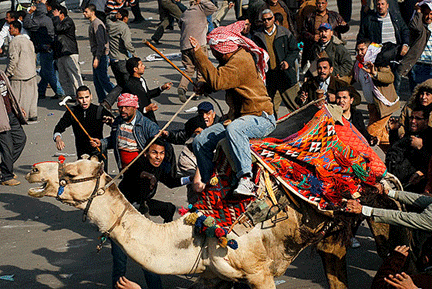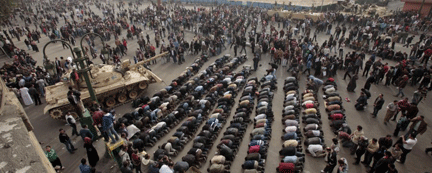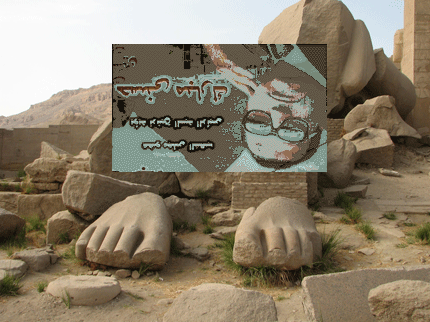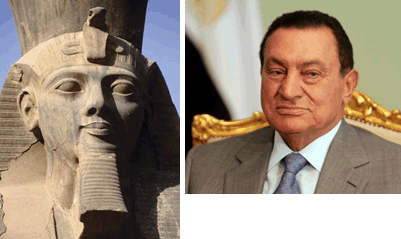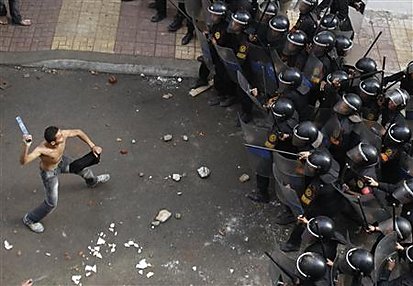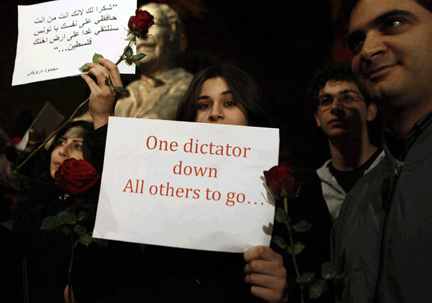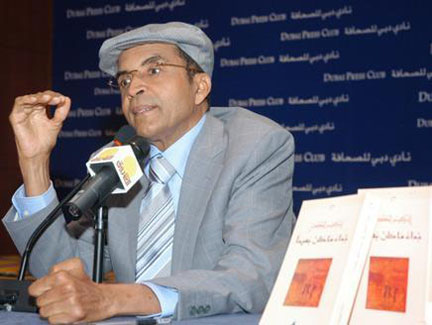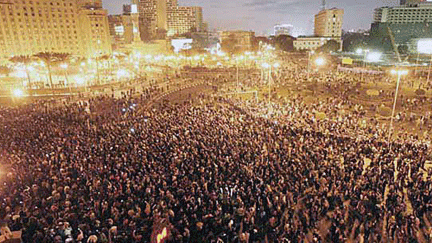
by Sherifa Zuhur, Sociology of Islam and Muslim Societies, February 1, 2011
I find it very difficult to assemble emotions, memories and impressions to respond to the events in Tunisia and Egypt. I have been responding sharply to others who seized the moment to offer their analysis. Certain characterizations of Egyptians did not sit well with me. I also fear that specific arguments are easily manipulated — that the centers of power who have so deftly dominated the media, huge sums of money and many segments of national elites will thwart the resurgence of popular resistance and demonstration of public will. But since those consulted by Barry and Joe and their “teams†are hard at work, spreading fear of a future Egypt non-compliant with the terms of Camp David, conjuring up the Islamist bogeyman, and (one fears) holding Hosni’s hand, we too should speak.
A group of Tunisian friends joined my Facebook page and share their jubilation and updates with me. Their example has inspired Egypt, however, to attribute events in Egypt to Tunisia, or social media and the impact of al-Jazeera would be wrong. Underlying events are Egyptians’ own lengthy struggles and perceptions that transformation is possible. To some degree, fear of counter-revolution is what froze civil expression in Egypt when the communists, the workers and the Muslim Brotherhood were each treated as intolerable threats to the Nasser government. Student activism became possible again in Sadat’s era, but firm rules were established about the “forbidden topics†(the infitah, peace with Israel, corruption, Saudi Arabia etc.) People complied, or they suffered professional defeat, exile, or worse. Then, for many years, violent attacks – against government officials, against judges, policemen, continued up to the crescendo of the firebombing of buses in Tahrir square and the massacre of tourists at Luxor. When the truce with the Gama’at Islamiyya and then Gihad Islami (Islamic Jihad) were achieved, the detentions, torture, and suspension of civilian liberties could have been lifted, but they were not. This year, I spent some time studying instances of extrajudicial actions versus what is acknowledged as state terror. Perhaps they differ in volume, but not in effect. We are speaking of drowning in cold water, the use of dogs, hanging, beatings, electrocution, and threats to family members. These were the weapons of government and are responsible, at least to some degree for the emergence of figures like Ayman al-Zawahiri. In the 2000’s as new “terror†threats emerged, the Minister of the Interior and his employees arrested thousands in the Sinai and elsewhere, and these tactics continued as well as public beatings and confrontations with demonstrators. The emergency laws were extended again, and again. Continue reading Dawn →
